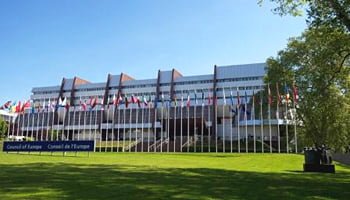
CoE GREVIO Report on Georgia’s Implementation of Istanbul Convention
On 22 November the Council of Europe Group of Experts on Action against Violence against Women and Domestic Violence (GREVIO) published a Baseline Evaluation Report on Georgia’s implementation of the Istanbul Convention.
The Istanbul Convention or the Convention on Preventing and Combating Violence against Women and Domestic Violence, aims to tackle violence against women and domestic violence, while also addressing the root causes of violence against women. Georgia ratified the convention in 2017, and this report is the first report on the country from GREVIO since Georgia’s ratification. GREVIO is an independent human rights monitoring body assigned with monitoring the implementation of the Istanbul Convention.
Welcomed Legislative Amendments
The report welcomed Georgian authorities’ attempts at strengthening women’s rights by introducing new legislation and policies, such as the National Action Plan on Combating Violence against Women and Domestic Violence and Protection of Victims 2018-2020. Moreover, Georgia’s Law on Violence against Women and Domestic Violence is deemed to provide a solid foundation for complying with the Istanbul Convention.
Furthermore, the report noted that further legislative measures have recently been introduced which are aligned with the Istanbul Convention. These legislative measures include amendments to domestic violence, as well as the introduction of new crimes such as forced marriage, female genital mutilation, and forced sterilization.
Achieving de-facto Gender Equality
While GREVIO welcomed the steps taken to improve gender equality and women’s rights through institutional and policy frameworks, they noted that there are wider societal issues with gender norms that also need to be addressed.
In that context, the report highlighted that the roles of both women and men are shaped from an early age, with women being more centered around motherhood and the household. The report underscored that this is an obstacle to achieving gender equality in Georgia.
GREVIO also drew attention to the need to increase financing for responses to violence against women, including psychological support. This includes more funding for civil society organizations and others working with women’s rights, as well as state services working with these issues.
Significantly, the report found a lack of comprehensive medical and forensic support for victims of rape and violence, as well as a lack of domestic violence shelters. Moreover, in order to combat attitudes, beliefs, and practices which obstruct effective responses to domestic violence, the report noted a need to provide training for law enforcement officials.
Recommendations
Overall, the report underscored that more efforts need to be directed toward women facing intersectional discrimination, including but not limited to, disabled, lesbian, bisexual, transgender, and intersex women as well as those belonging to ethnic minorities. This encompasses raising awareness among these groups about their rights and what services are accessible to them, as well as financial support to research focusing on these groups.
Moreover, several legislative changes need to be made, including for rape to be defined more clearly in the Criminal Code of Georgia in alignment with the consent-based definition in the Istanbul Convention.
In that context, the report called for the increased “involvement of NGOs in all stages of the preparation, coordination, and implementation of laws, public policies, and programs to prevent and combat violence against women and to support the expansion of NGO-run specialist services…”
GREVIO also emphasized the need to “address persisting gender stereotypes and their peddling by the media, and to encourage the private sector, in general, to adopt self-regulatory standards in order to prevent and combat violence against women, in particular sexual harassment.”
Significantly, GREVIO requested that the national authorities translate the report into the official languages, so that it may be disseminated widely across the country, both to state institutions, and civil society actors.
Read the full report here.
Also Read:
This post is also available in: ქართული Русский